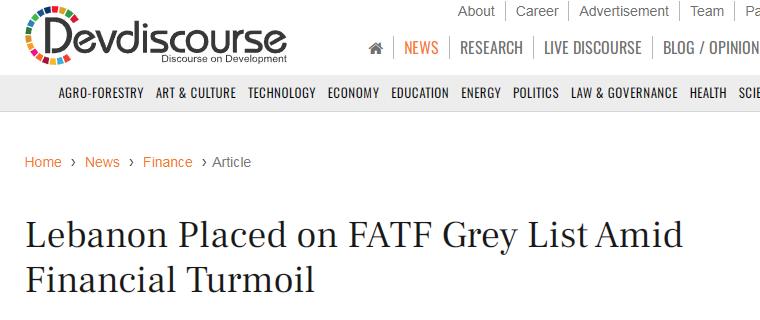
Lebanon’s economic storm has intensified, with the Financial Action Task Force (FATF) placing the nation on its “grey list”—a designation that puts countries under strict global scrutiny for financial crimes. The grey list is a warning signal to global investors and banks, marking countries with high risks for issues like money laundering and terrorism financing. This step not only affects Lebanon’s already fragile banking system but also puts more pressure on a country in financial freefall.
Being on the grey list is more than a name; it essentially serves as a warning label to the world. Countries on this list face increased monitoring from FATF and must comply with heightened international standards to prevent and address financial crimes. This is especially challenging for Lebanon, where the economy has been in a downward spiral since 2019, with its currency losing over 90% of its value and poverty levels soaring. According to FATF, Lebanon’s issues stem from loopholes and oversight failures in financial governance, which have created channels for money laundering and terrorism financing to flourish.
Lebanon’s central bank, the Banque du Liban, has remained silent on the grey listing. This lack of response underscores the paralysis that has gripped Lebanon’s financial and political institutions. For Lebanese citizens, this means fewer foreign investments, limited access to international credit, and, potentially, more inflationary pressure on essential goods. Adding fuel to the fire, banks may find it harder to attract international partners and funding, pushing the Lebanese financial system closer to collapse.
The Financial Action Task Force has issued reassurances that humanitarian aid to Lebanon will not be affected by the grey listing, making it clear that efforts to provide food, medical supplies, and other essential relief should not face obstacles. Still, the FATF’s decision casts a long shadow on the future.
This is a grave signal for Lebanon, where over 70% of the population already lives in poverty. With mounting financial pressures and international trust eroding, the path forward is uncertain and fraught with hardship.
Sources: